As Team Oculus progresses through the semester, our dedication to tackling the monumental challenge of space debris has only intensified. Building upon the foundation laid out in our previous blog post, we’re excited to share the developments that have emerged during our design detail [mid-semester checkpoint] presentation.
Introducing ORRUS: Orbital Recovery Recycling & Utilization System
In our quest to address the growing threat of space debris, we’ve refined our solution into what we proudly call ORRUS. This comprehensive system not only focuses on the collection of orbital debris but also extends its reach to the processing of materials from decommissioned satellites within the Lower Earth Orbit (LEO).
With ORRUS, we aim not only to clean up the space environment but also to repurpose and recycle materials, paving the way for a sustainable approach to space exploration and utilization.
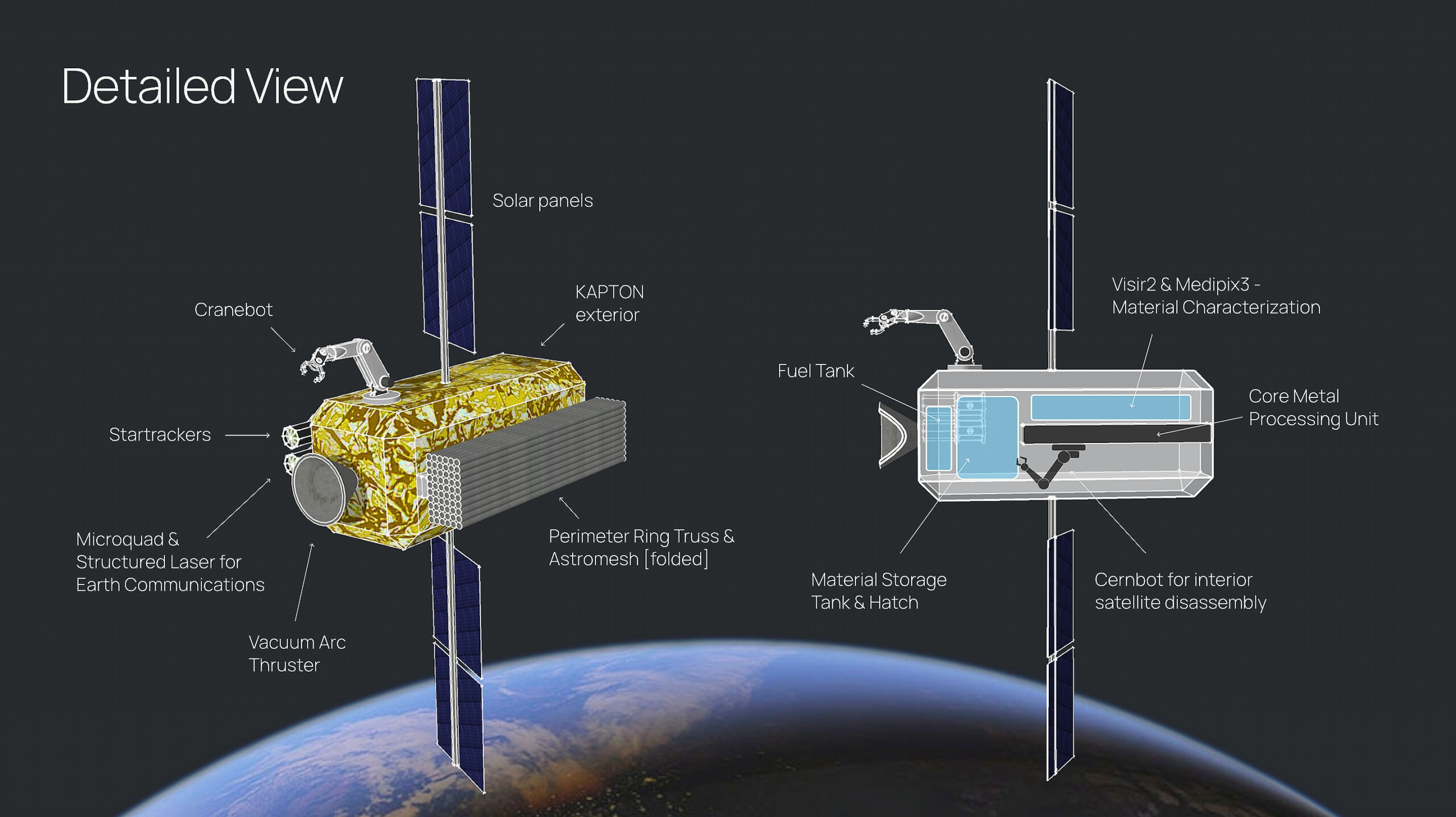
ORRUS – Orbital Recovery Recycling & Utilization System
Let’s dive into the core components of ORRUS:
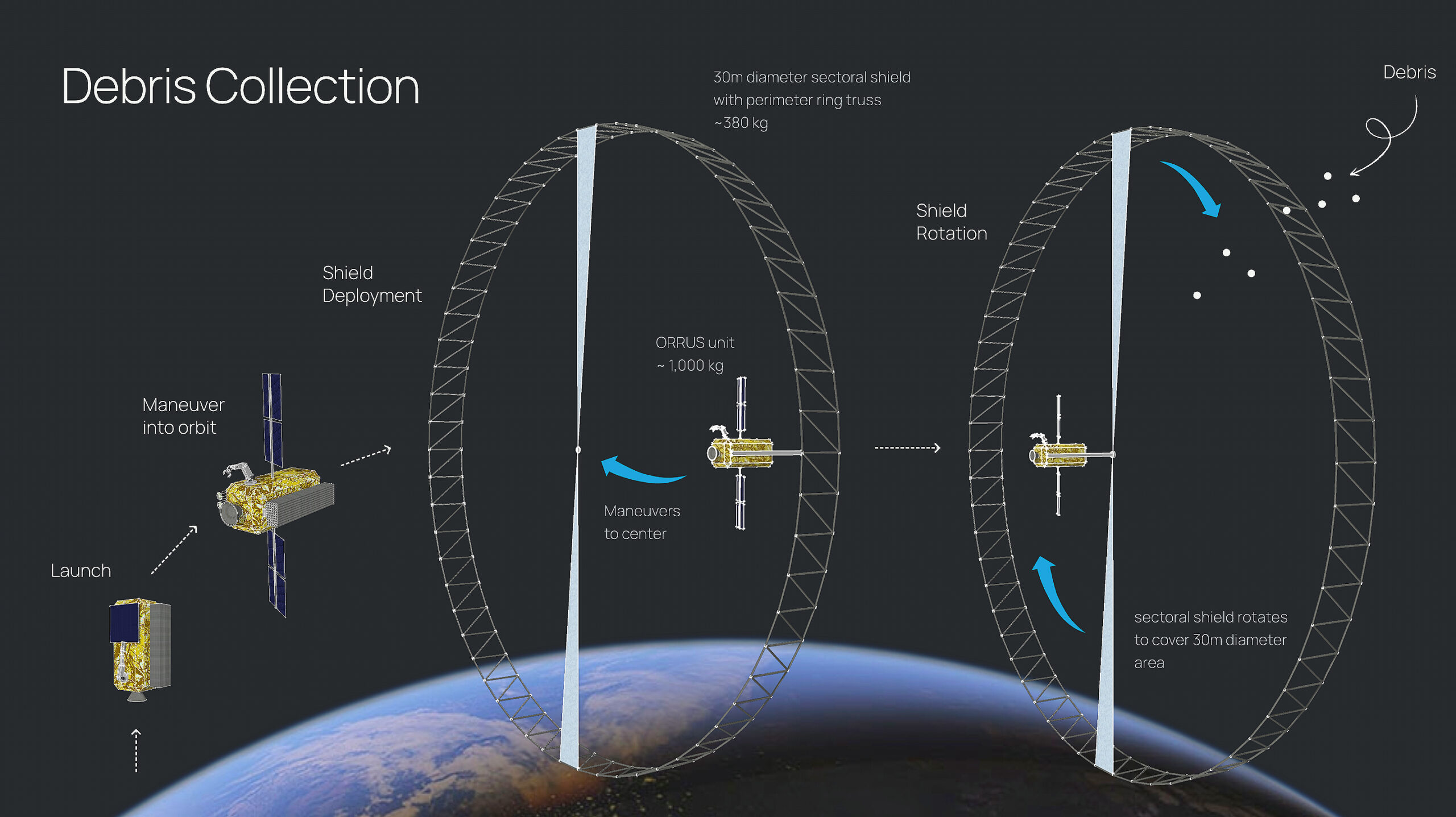
Debris Collection
Debris Collection: Utilizing a 30-meter diameter sectoral shield with a perimeter ring truss and astromesh weighing 380kg, ORRUS efficiently collects small debris ranging from 1cm to 10cm. These collected materials are then processed into fuel for ORRUS’s maneuvers, ensuring operational sustainability.
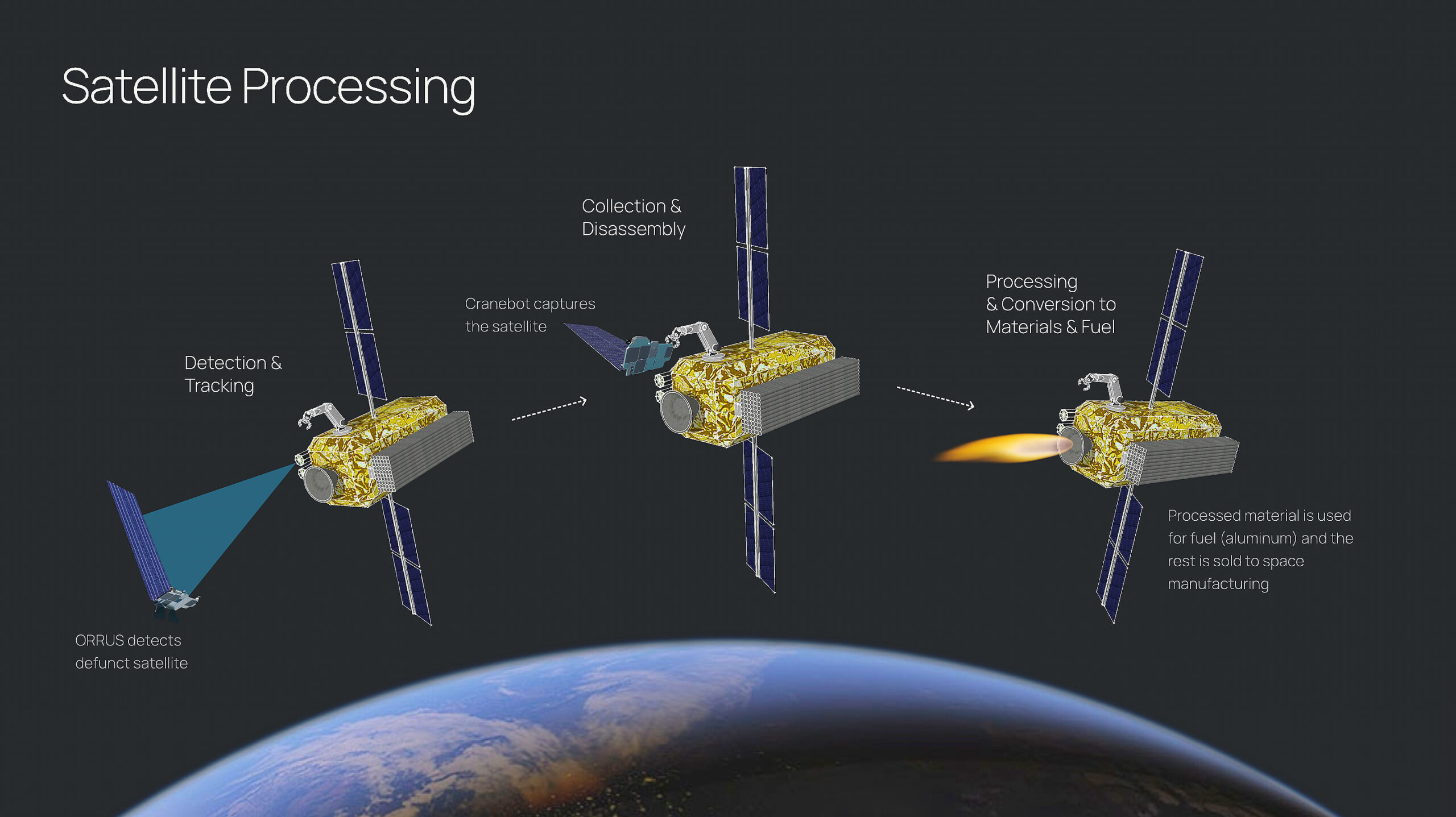
Satellite Processing
Satellite Processing: ORRUS employs advanced technologies such as Startrackers for satellite detection and tracking, Crane Bot for secure satellite handling, and CERN bot for precise disassembly and processing. Additionally, VISIR 2 and Medipix 3 facilitate material categorization before undergoing processing in the core metal processing unit, paving the way for material repurposing in various space applications.
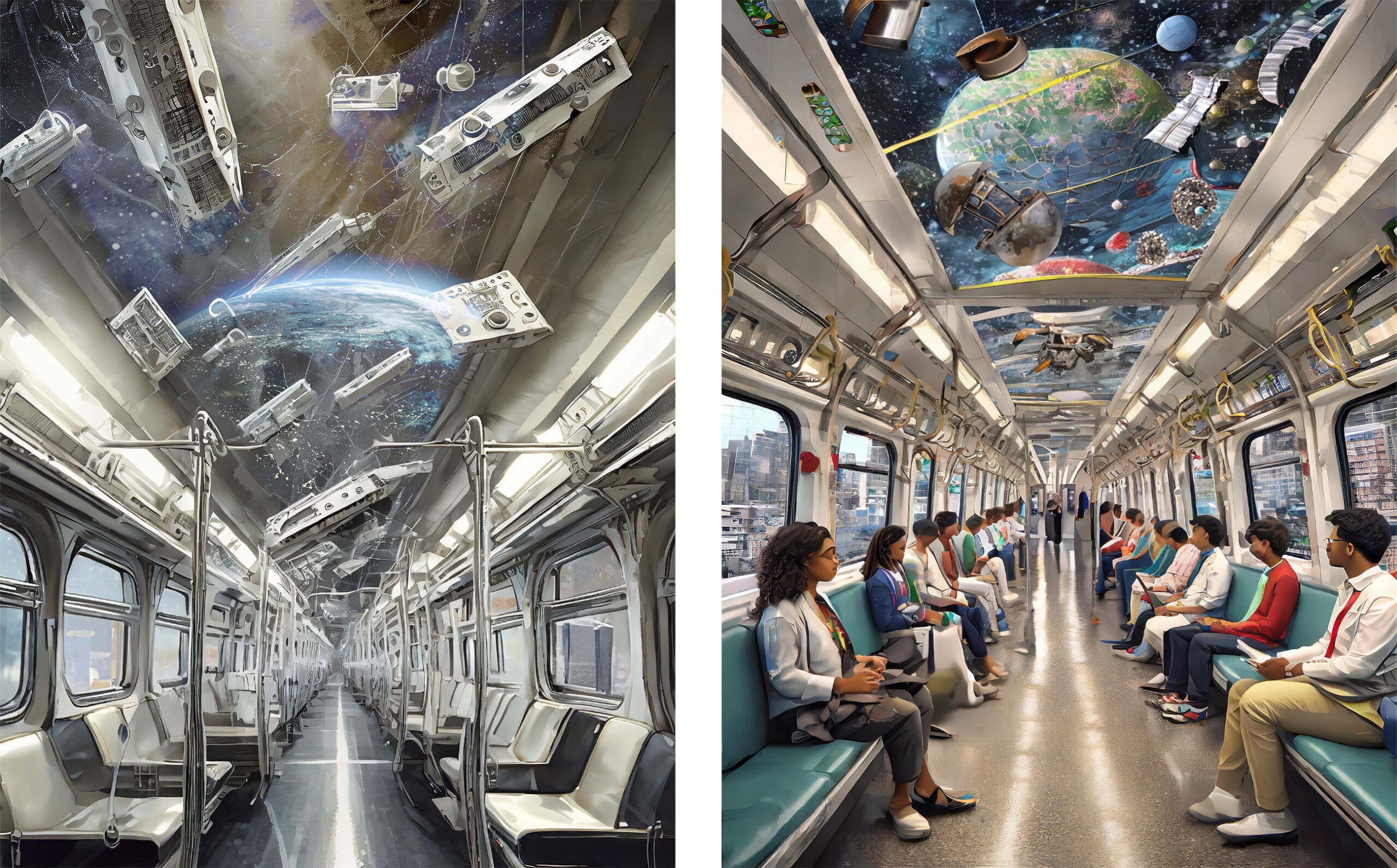
Accountability & Transparency
Accountability & Transparency: Recognizing the pivotal role of accountability, we’ve devised an innovative strategy by integrating real-time data and projections of space debris in unexpected yet impactful locations. One notable initiative involves visualizing space debris projections within the NYC subway trains. By making debris data and sources accessible to the public, industry stakeholders, and policymakers, our goal is to enhance transparency and awareness regarding the scale of space debris and its repercussions for our planet.
Through this direct exposure, our aim is to instill a sense of responsibility among stakeholders, compelling them to reflect on the enduring effects of their actions in space. By leveraging such initiatives, we seek to catalyze a fundamental shift in attitudes towards space debris, paving the way for a more sustainable and accountable approach to space exploration.
The Impact of ORRUS
Our preliminary analysis reveals the substantial impact ORRUS can have in stabilizing the space environment:
According to NASA, processing 5-10 pieces of large debris per year is crucial for stabilizing the space environment. With ORRUS, we aim to remove and process 52 satellites per year, significantly contributing to space sustainability. Unlike traditional sweeper-style solutions, which incur exorbitant costs, ORRUS offers a cost-effective alternative. With a projected cost of $7.5k per debris piece captured, ORRUS presents a financially viable solution for debris management. Leveraging economies of scale, ORRUS generates revenue by selling processed materials to space manufacturing industries. By repurposing space debris, we not only mitigate hazards but also unlock economic opportunities in space.
Looking Ahead
As we forge ahead, we are poised to address critical questions, including identifying major obstacles, understanding criticisms of existing recycling solutions, and pondering the significance of space for humanity. Furthermore, we’ll delve into the motivations driving new countries to enter the space race and articulate why ORRUS holds pivotal importance in shaping the future of space exploration, while also reflecting on the feedback garnered during our design detail presentations.
There is more to come as we embark on this transformative mission to safeguard our celestial environment and unlock the boundless potential of space for generations to come. Stay tuned for more updates on our quest with ORRUS!

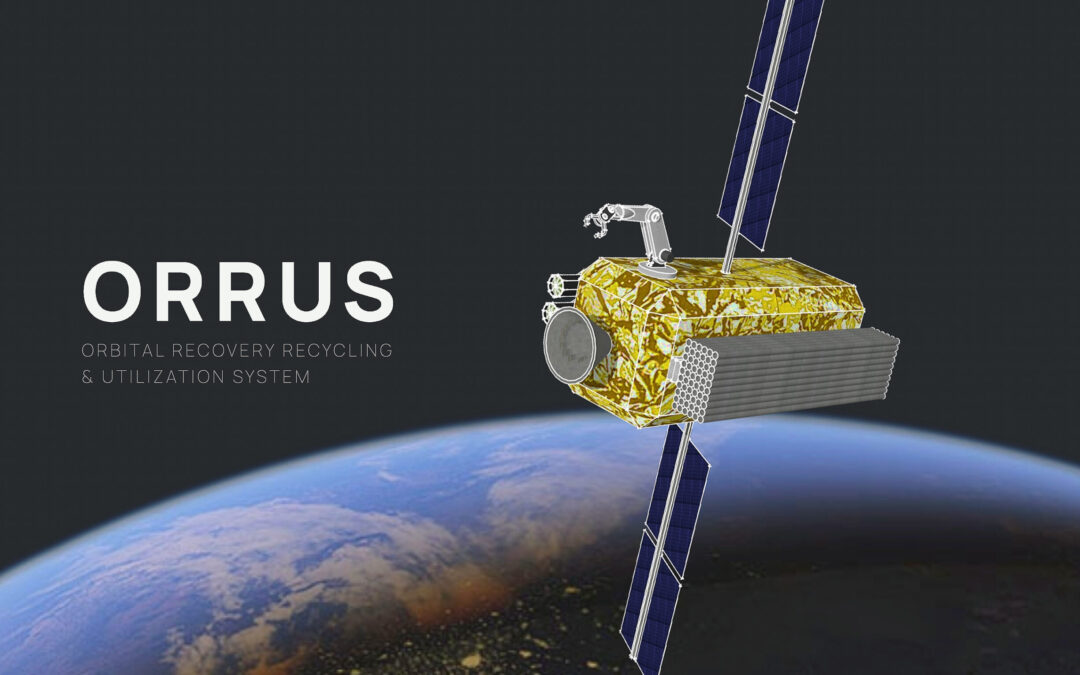
Recent Comments